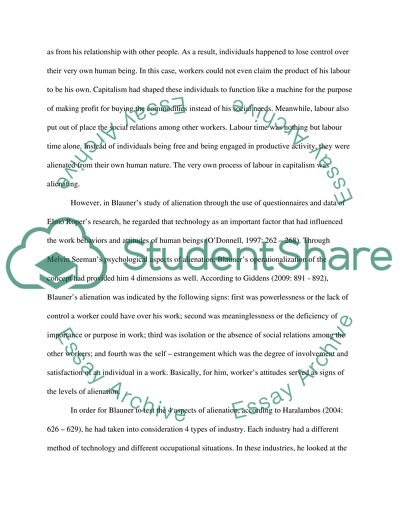Cite this document
(“Blauner's Operationalization of Alienation: On What Grounds It Can Be Coursework”, n.d.)
Retrieved from https://studentshare.org/sociology/1442747-to-what-extent-can-blauner-s-operationalisation-of
Retrieved from https://studentshare.org/sociology/1442747-to-what-extent-can-blauner-s-operationalisation-of
(Blauner'S Operationalization of Alienation: On What Grounds It Can Be Coursework)
https://studentshare.org/sociology/1442747-to-what-extent-can-blauner-s-operationalisation-of.
https://studentshare.org/sociology/1442747-to-what-extent-can-blauner-s-operationalisation-of.
“Blauner'S Operationalization of Alienation: On What Grounds It Can Be Coursework”, n.d. https://studentshare.org/sociology/1442747-to-what-extent-can-blauner-s-operationalisation-of.


